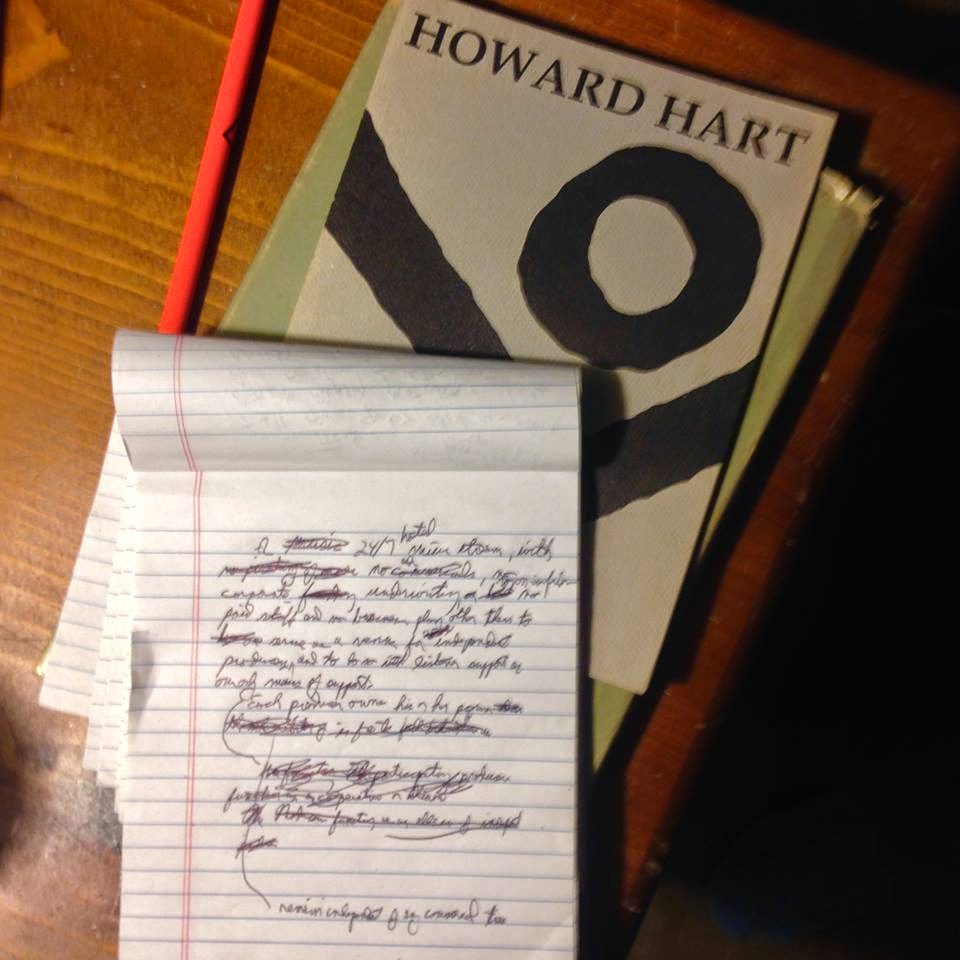This blog entry is actually a comment I posted within a LinkedIn Crime Fiction group discussion
"Are You Your Best Editor?" It describes a bit about the intensive editing process that has gone into the soon-to-be-shopped Arisugawa Park manuscript.
"I work with an editor out of the box - within the first 100 pages. Not for copy edits but for content editing. I need to know if those first 100 pages sing"
Rebecca Forster's comment makes a lot of sense to me. Naturally, if you can get the same level of input from friends and fellow writers, you may be able to avoid the paid editor route altogether and save considerable money.
I was a member of the
South Bay Writer's Group in California for a more than a year and had high-level content/grammar/style input about
Arisugawa Park from the kinds of authors who really know their stuff (including
Byddi Lee, who has successfully self-pubbed her first novel, set in Belfast, "March to November").
I also had maybe a dozen independent readers do editing, particularly of the first several chapters––and first several versions––of the novel. These included my mom ( a former bookstore manager and book sales rep), my old high school English teacher, a freelance editor who leads a chapter of the California Writer's Club, and a librarian at the school library where I held a part-time job while a graduate student. Reader/editors also included a fellow graduate student with an interest in the Japanese culture & language, and a Japanese friend from my days teaching English there. The editing quality ranged from spot-on to questionable––taking into consideration the taste of the readers allowed me to triangulate a great deal.
"Traditionally published authors, when they're lucky, have a team who can do that [editing] with them."
Jenny Milchman's comment is well taken. I had a whirlwind 2014, in which I earned the annual
Book Passage Mystery Writer's Conference scholarship and picked up an agent Kimberley Cameron whose
agency is prominent at the conference. (I had been in contact with her about Ari Park since 2010, that's another story).
Even before I was officially on board as a client, the agency principal (my agent), a fellow agent at the agency, and an intern (who has since moved on to an assistant editor's position with Harper Collins) had taken editorial passes at my 135,000 word manuscript. This was more than invaluable... at this particular agency at least, the agents have a keen sense of what actual editors are interested in and what will sell. (Unfortunately, whittling the book to 120,000 words or less seems to be one of the priorities).
I have used the extensive agency edits, as well as a four-hour lunchtime discussion with Kimberley, as a revision template over the past four months, as I struggle to polish a manuscript that I am supposed to have ready to submit in a couple days. The former intern has been gracious enough to undertake a second edit of Ari Park, even though she has officially moved on––she feels invested, as she was perhaps the one who pushed for me to be taken on, even with my manuscript not quite as polished as needed to shop around.
I will have about two days to incorporate the former intern's changes before sending the manuscript to my agent around mid-January. The manuscript will then require a final pass or three, to ensure it is "as good as it can possibly be" and ready to shop to editors in New York––hopefully by early February. Fortunately, the timing is all rather good.. the literary mystery-thriller, 10 years in the making, centers on North Korea and Japan relations.
Bottom line is that, yes, if you have built up a close-knit network of friends and allies, you can wind up with a more-than-professionally edited manuscript, without paying cold hard cash. You may, however, need to repay in kind and really cannot expect anything more than individual readers are willing to give. So cast your net wide across your network of colleagues, friends, fellow writers, and family members.
If I didn't have discerning editors among the bunch, I would certainly have hired a professional editor, but I had that––coupled with an original vision and a receptive mind––and went my own way.






